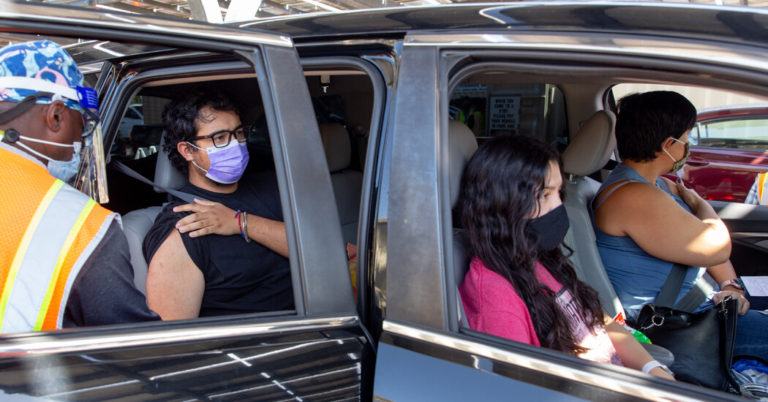

Global health activists, who have been pressing for the waiver, praised the administration’s decision. It is “a truly historic step, which shows that President Biden is committed to being not just an American leader, but a global one,” said Priti Krishtel, an executive director of the Initiative for Medicines, Access & Knowledge.
But the activists said a waiver alone would not increase the world’s vaccine supply. It must be accompanied by a process known as “tech transfer,” in which patent holders supply technical know-how and personnel. Activists are also demanding that Mr. Biden use his leverage to ensure that manufacturing is scaled up around the globe, and not just by the pharmaceutical companies that now hold the patents.
“No U.S.T.R. has made a pronouncement like this,” said Asia Russell, the executive director of Health GAP, a global AIDS treatment advocacy group, using the abbreviation for the trade representative. “And now the actions have to match the words.”
The United States’ announcement is only one step toward a potential international agreement on suspending intellectual property rights. Negotiating the fine print of an agreement that satisfies countries around the world is a tall order. If an agreement can be reached at the World Trade Organization, it is far from clear what would happen next.
Lisa Larrimore Ouellette, a patent law professor at Stanford Law School, suggested that the Biden administration’s move may help sway the drug industry to reach “deals that they can live with.”
Ana Santos Rutschman, a health law expert at Saint Louis University School of Law, said the drug industry now has a clear incentive to “shift the debate to the global equity problem in accessing doses that we can actually produce, as opposed to getting into this enormous fight.” The best bet for companies, she said, may be to take steps like donating more vaccine doses or selling them on a nonprofit basis to lower-income countries in need.
The debate over whether to relax intellectual property rules has stretched on for months. India and South Africa proposed the waiver last fall, seeking to suspend portions of an international intellectual property agreement dealing with issues like patents, copyrights and trade secrets. Under President Donald J. Trump, the United States opposed the effort. Other opponents have included Britain and the European Union.